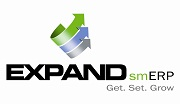 When it comes to taking a pick
for the software for export import business
which is right for your business you may feel a bit overwhelmed. But when
your ERP software for exports needs
to have a specific functionality the task can quickly become a headache.
Accounting, Inventory, Basic CRM functions are handled by almost all ERPs. But
at the same time if still stick to manual procedures in other processes it won’t help your business much. You need
to consider not only the ERPs that provide a comprehensive functionality but
also which ones can be tailored to suit your needs.
When it comes to taking a pick
for the software for export import business
which is right for your business you may feel a bit overwhelmed. But when
your ERP software for exports needs
to have a specific functionality the task can quickly become a headache.
Accounting, Inventory, Basic CRM functions are handled by almost all ERPs. But
at the same time if still stick to manual procedures in other processes it won’t help your business much. You need
to consider not only the ERPs that provide a comprehensive functionality but
also which ones can be tailored to suit your needs.
The
Factors that need to be considered
If you consider the functions,
there are a number of components which are important in an import- export
management tool. Tasks like tracking costs, the ability to account for various
currencies and customs processing done
the automated way fall under their preview. Besides, the functionality you should also consider support,
costs and the satisfaction of previous clients with the software tool.
In order to have your inventory
costs accurate the software has to take into account landing costs. Such costs
are inclusive of taxes, brokerage, freight and duty. Once you have detailed
reports about the products cost you can then set an appropriate selling cost
for individual products.
If you are operating on a global
scale then you just have to deal with multiple currencies. This makes it easier
to change your selling price according to cost fluctuations. The scope of human
error in calculation is also removed. You just must have software for export import business that keeps a track of what your
customers owe you and in which currency and what do you owe them.
Automation of customs procedures
saves loads of time which would otherwise have been spent in the manual organization, entry and updating all the
relevant information.
Customer satisfaction too should
figure prominently in your ERP checklist. Don’t be
afraid to ask people using the ERP in order to know its advantages and
drawbacks. Let the ERP vendor get acquainted with your business and make a
customized pitch. A vendor who understands the needs of your business, as well as the particular industry you
operate in, will be in a better position to be of help to you.
Lastly, keep in mind the support
factor. If you may need round the clock support does the ERP vendor offer that?
Remember that large software companies outsource their support services while a
startup will be able to provide a more customized support experience in-house.
To Sign Off

